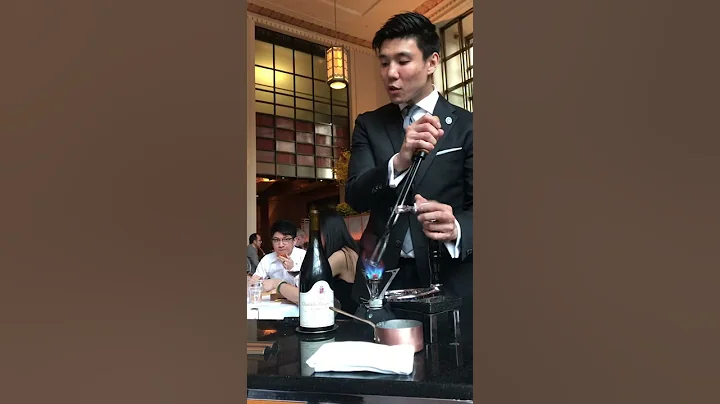
Each circle has its own professional vocabulary, and the liquor industry is no exception. If you have friends who love to drink sauce , or often browse the knowledge about wine culture, you will hear some "special words", such as: Qingya , delicate, rich... The aroma of white wine is very complex. The aroma of the same type of white wine is ever-changing. Even in the same bottle of wine, it is composed of a combination of multiple aromas. There are many professional terms about the aroma of liquor. What do they mean?

A term indicating the degree of aroma
No aroma: The aroma cannot be smelled.
seems to have a fragrance: has a weak fragrance, between vague and non-existent.
has a slight aroma: has a faint aroma.
Insufficient aroma (not enough aroma): It cannot reach the normal aroma of the wine.
Elegant: The aroma is neither strong nor light, and pleasant.
Delicate: The aroma is pure, delicate and soft.
is pure: is pure and has no odor.
Rich: The aroma is rich and fragrant.
Fragrance: The aroma is slowly released from the wine, and sometimes it also expresses the smell of the wine.
is fragrant: is fragrant.
Entrance aroma: The aroma that comes out of the wine after entering the mouth.
After-smell: The fragrance that remains in the mouth after drinking. It is the fragrance that you feel when you close your mouth and exhale, and the airflow comes from the nasal cavity.
Aftertaste: The return aroma that can be felt after burping after drinking alcohol.
Long: Long, pulse, and continuous all describe the lasting aroma, and are often used to express the lingering fragrance and aftertaste of wine.
Coordination: There are a variety of aromas in wine, which are in harmony with each other.
Perfect: The aroma is harmonious, without any feeling of deficiency.
Floating aroma: Although the aroma is rich but lacking, it makes people feel that the aroma is not generated by natural fermentation, and it feels like it is added (added in).
Aroma: The aroma is pleasant, such as the aroma of flowers and fruits.
Aged aroma: is also called old wine aroma, which is the aroma of mature wine. It is slowly oxidized and esterified under long-term storage to form the aroma.
Inherent aroma: is the aroma that has been maintained for a long time.
Strange aroma: One refers to the aroma that is not available in similar wines and is unique and forms the unique style of the wine. The other refers to the aroma that does not often appear in the wine and should be regarded as unusual. Normal aroma.
Burnt aroma: seems to have a slightly pleasant burnt smell.
Aroma: The aroma of is roughly the same as that of similar wines, but careful identification makes people feel the unique style and charm.
Odor: has an unusual and unpleasant smell.
Pungent smell: has a pungent, eye-smoking and spicy feeling.
Odor: Such as burnt gas, rotten gas, wood gas, mold gas, rubber, plastic odor, etc.

Common terms used to evaluate the aroma of liquor
Mellow aroma: The normal aroma of general liquor.
Quxiang: The special aroma formed by the koji used in brewing liquor.
Sauce aroma: refers to the inherent aroma of Maotai liquor, also known as Mao Xiang.
Grain aroma: The special aroma that is brought into the wine when the grains used in winemaking are mixed and steamed medium grains grains are steamed.
Bad aroma: is not an ordinary "lees aroma", but a special "bad aroma" with a fresh and pure smell.
Fruity aroma: refers to the aroma of fruit in some liquors.
Burnt aroma: The formation of this aroma is closely related to the wine cellar. It should feel like the special aroma of cellar mud rather than the smell of cellar mud.
sour aroma: sour and refreshing.
Sesame aroma: A unique aroma of liquor, like the aroma of fried sesame .
The aroma is not correct: the aroma is not pure, has the smell of aldehydes, oily smell, fusel oil smell, or the smell that this kind of wine should not come out.
Rich wine aroma: has a complete aroma of aged wine.
Mature wine aroma: After a period of storage, it also has a certain aged aroma.
New wine smell: New fermentation, the smell of new wine that has not been stored.
The wine aroma is not enough: The wine aroma is very light and weak.

The aristocratic aroma among Chinese liquors is none other than sauce-flavor liquor . It has a prominent sauce aroma, fragrant aroma, elegant, very long-lasting and stable, and the fragrance of in an empty cup can maintain the original aroma characteristics for a long time. As the benchmark of high-end liquor, Guitaizu Maotai Liquor is brewed using "Zheng's 117 Qu Yao Formula" and strictly follows the "12987 Daqu Kunsha Technology". It is crafted by well-known domestic experts in the blending of Maotai Liquor and is endowed with outstanding sauce aroma. It has the characteristics of mellow entrance, long aftertaste, mellow aftertaste, and long-lasting aroma in the empty cup. The national secret formula and ancient brewing are perfectly integrated and harmonious.

Note: The content and pictures of this article are synthesized from the Internet. The emphasis is on communication and sharing. It is not for commercial use. If there is any infringement, please leave a message and contact the editor to delete it.






![Muslims are NOT allowed to eat this! | [snack edition] #shorts - DayDayNews](https://i.ytimg.com/vi/KkzQ46t4ZSQ/hq720_2.jpg?sqp=-oaymwE2CNAFEJQDSFXyq4qpAygIARUAAIhCGABwAcABBvABAfgBzgWAAoAKigIMCAAQARhlIFMoRjAP&rs=AOn4CLB2hoFpl_7j-zEhcVOrmlB8dUVJpw)














